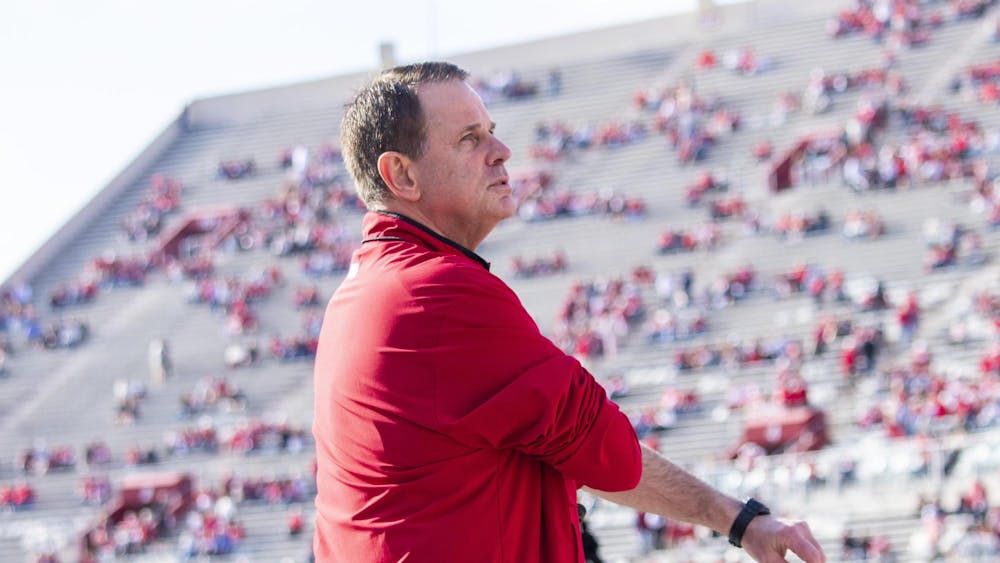The average law school graduate owes $100,000 in student loans, according to Forbes
Magazine.
Such a number would seem daunting in a healthy economy, but at a time when the 2010 national unemployment rate was nearly 10 percent, that much debt becomes even more frightening, according to the United States Department of Labor.
The law class of 2009 has an employment rate greater than 88 percent, according to a survey done by The National Association for Law Placement.
What appears to be a testament to the law profession might actually be the result of what law professor William Henderson and Val Nolan, faculty fellow at IU’s Maurer School of Law, described in an interview with the New York Times as “Enron-type
accounting.”
Law schools are ranked “based entirely on unaudited surveys conducted by each law school, using questions devised by the American Bar Association and the National Association for Law Placement,” according to the New York Times article. The results of this survey are then published by U.S. News.
Henderson said since employment statistics figure into the ranking system and because the system has no oversight, it pays for schools to use disreputable
numbers.
Henderson said the result is that employment statistics on a law school’s website might not match reality.
“Bar passage is about 84 percent, employed at nine months about 93 percent,” he said. “Anybody can do the math and realize that there is a bunch of people who are employed that haven’t passed the bar yet.”
Henderson said when a prospective student is making a decision on whether to attend law school, it’s imperative that law schools accurately represent their employment numbers.
Though for some law students, job placement numbers aren’t the deciding factor in where to attend school.
Noah Pinegar, who graduated from the IU Maurer School of Law in May 2010, said he didn’t focus too much on the job placement statistics. Rather, he said he was more concerned with the location of his future job.
“In settling on IU, I saw a place where I could focus and a school with a strong alumni base in D.C.,” he said.
Pinegar, who is currently employed at the law offices of Paul, Hastings, Janofsky & Walker in Washington D.C., said his professors at the Maurer School of Law told him how tough the job environment would be. He said the school was honest about the slowing down of the industry and stressed hard work and networking as essential to landing a job after graduation.
Gavin Ferlic, who also graduated in May 2010 from the IU Maurer School of Law, said the job placement numbers didn’t play too big a role in his decision to attend law school either. It was the faculty, Ferlic said, that ultimately convinced him to attend IU, specifically the Entrepreneurship Law Clinic.
Currently working as an independent business consultant, Ferlic said the law degree he received from IU has afforded him the flexibility to re-enter the legal field if he chose to at a later time. However, he said he loves working in the business world and does not see a career change as likely.
It’s this passion, Henderson said, that prospective law students need to focus on when deciding where to attend law school.
“The great misunderstanding of every prospective law student is they separate out what’s prestigious, what will make them a lot of money with what they’re really passionate about,” Henderson said. “It’s awfully expensive to go to law school ... if you’re not sure it’s going to be for you.”
Both Ferlic and Pinegar said they were pleased with the education and opportunities they received from the IU Maurer School of Law and would make the same choice again if given the chance.
“I am fortunate to be doing exactly what I want to be doing in the place where I want to do it, and I am extremely grateful to Maurer ... for giving me these opportunities,” Ferlic said.
Law students remain optimistic in bad economy
Get stories like this in your inbox
Subscribe




